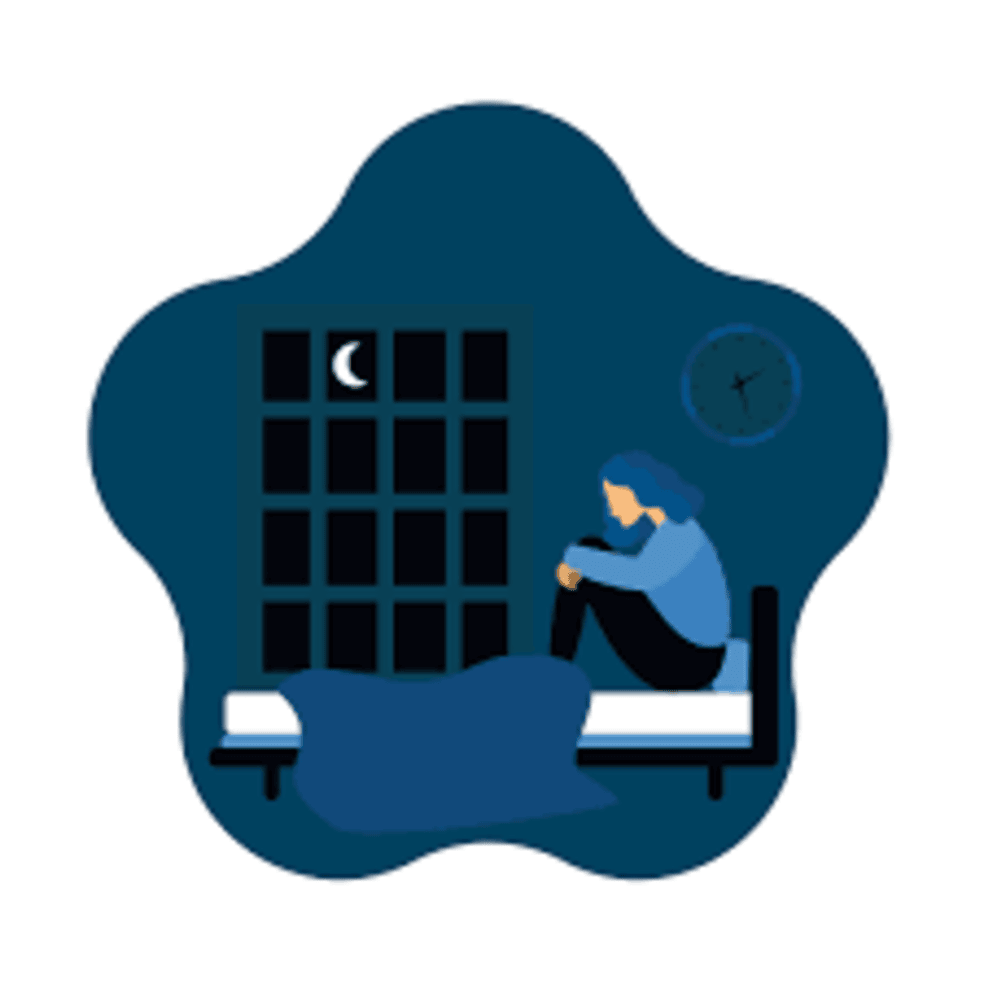Sleepless Realms: Navigating Life with Insomnia

Insomnia is not just a battle with sleepless nights; it is a journey through the shadowy corridors of restlessness and fatigue. For many, insomnia is a fleeting inconvenience, but for others, it is a chronic condition that alters their perception of day and night. This article dives into the intricate world of insomnia, uncovering its causes, impacts, and ways to reclaim the peace of a good night's sleep.
The Silent Struggle of Insomnia
Insomnia often begins subtly. You lie awake, staring at the ceiling, your mind racing with thoughts. The clock ticks louder with every passing hour, and soon, the sun peeks through the curtains, signaling another sleepless night gone by. For those grappling with chronic insomnia, this scenario is all too familiar. The inability to fall asleep or stay asleep can be devastating, affecting mental clarity, physical health, and emotional stability.
Research indicates that about one-third of adults experience insomnia at some point in their lives, with 10-15% dealing with chronic forms. The triggers vary: stress, anxiety, depression, lifestyle habits, and even environmental factors like noise or light. Understanding these triggers is the first step in managing insomnia effectively.
The Ripple Effects of Sleeplessness
Insomnia doesn’t just steal your sleep; it infiltrates every aspect of life. Fatigue becomes a constant companion, making even mundane tasks feel overwhelming. Cognitive functions such as memory and decision-making falter, while emotional health suffers as irritability and mood swings take hold.
Physical health is not spared either. Chronic sleep deprivation has been linked to a host of conditions, including heart disease, diabetes, obesity, and weakened immunity. The risk of accidents increases, as sleep-deprived individuals often struggle with impaired focus and slower reaction times.
But perhaps the most insidious effect of insomnia is the sense of isolation it creates. While the world sleeps peacefully, insomniacs often find themselves alone in their sleepless realms, battling frustration and helplessness.
Breaking the Chains of Insomnia
Though insomnia can feel like an insurmountable foe, it is not invincible. By understanding its root causes and adopting targeted strategies, you can begin to reclaim your nights and restore balance to your days.
1. Adopt a Sleep-Friendly Routine
Consistency is key to resetting your internal clock. Go to bed and wake up at the same time every day, even on weekends. Create a calming bedtime routine that signals your body it’s time to wind down. This could include reading a book, meditating, or indulging in a warm bath.
2. Create a Sleep-Conducive Environment
Transform your bedroom into a sanctuary for sleep. Keep the room cool, dark, and quiet. Consider using blackout curtains, white noise machines, or earplugs to minimize disturbances. Invest in a comfortable mattress and pillows that support restful sleep.
3. Mind Your Diet and Habits
What you consume throughout the day can significantly impact your sleep quality. Avoid caffeine, nicotine, and heavy meals close to bedtime. Instead, opt for sleep-friendly foods like bananas, almonds, or a small glass of warm milk.
4. Manage Stress and Anxiety
For many, insomnia is deeply tied to stress and anxiety. Techniques such as deep breathing, progressive muscle relaxation, or mindfulness meditation can help calm an overactive mind. Journaling before bed can also be a powerful way to release pent-up thoughts and worries.
5. Limit Screen Time
The blue light emitted by smartphones, tablets, and computers can disrupt your body’s production of melatonin, the hormone responsible for sleep. Make it a habit to disconnect from screens at least an hour before bedtime.
6. Consider Professional Help
If your insomnia persists despite your best efforts, seeking professional help is crucial. Cognitive Behavioral Therapy for Insomnia (CBT-I) is a highly effective treatment that addresses the underlying thought patterns and behaviors contributing to insomnia. In some cases, medication like Zopifresh 7.5 mg may be prescribed to help regulate sleep patterns, but this should always be used under medical supervision.
The Journey Toward Restful Nights
Overcoming insomnia is not a one-size-fits-all process. It requires patience, self-awareness, and a willingness to experiment with different strategies. Keep a sleep journal to track your patterns and identify what works best for you.
Celebrate small victories along the way. A single night of better sleep may feel like a minor triumph, but it is a stepping stone toward lasting improvement. Surround yourself with a support system of understanding friends, family, or even online communities where fellow insomniacs share their experiences and tips.
Embracing a New Dawn
Life with insomnia can feel like navigating a sleepless realm, but it is possible to find your way back to restful nights and vibrant days. By addressing the root causes, making thoughtful lifestyle changes, and seeking help when needed, you can reclaim your sleep and improve your overall quality of life.
So, if you’re tired of tossing and turning, take the first step today. Whether it’s adjusting your routine, creating a calming sleep environment, or exploring therapeutic options, remember: every effort counts. Soon, the sleepless nights will give way to peaceful slumber, and the realms of insomnia will become a distant memory.
- Education
- Course
- Books
- Drawing
- Question
- Film
- Fitness
- Food
- Games
- Gardening
- Health
- Home
- Literature
- Music
- Networking
- Other
- Programming
- Religion
- Shopping
- Sports
- Curriculm
- Wellness


